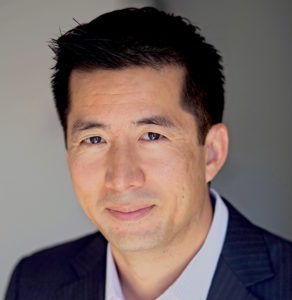“How can I be absolutely certain?” OCD and the endless search for reassurance
Posted: February 6, 2020

How can I be absolutely certain……?

….that I turned the stove off before I left the house?
….that I WON’T be exposed to deadly bacteria after touching a public doorknob?
….that I WON’T actually fulfill the image in my head about pushing someone into traffic?
….that the tweet I posted 8 years ago WON’T get dug up, misinterpreted, and used to ruin my reputation?
….that my sexual thought about a friend’s spouse DOESN’T mean I should leave my own spouse?
Whatever thoughts or ideas you might fill in that blank with, you might already know the answer to the question:
You can never be absolutely, one hundred percent, beyond a shadow of a doubt certain.
Of anything.
Yet, this is the trap that people suffering from OCD frequently fall prey to – the search for complete certainty. Total reassurance that something they fear is not true, or will not come true.
This futile search for certainty happens because the mind with OCD tends to distrust its own judgment. While some part of you might think, “These thoughts are ridiculous. Of course that won’t happen,” another part of you whispers (or sometimes shouts),”…but what if?” “You never know.”
This can lead into an endless loop of questioning, reviewing, checking, searching online, and asking others for reassurance – all of which only feeds the habit (a.k.a. compulsion) of needing to repeat these habits again to feel at ease.
Meanwhile, OCD-free friends and family members go about blissfully free of these doubts and fears.
Tolerating the grey areas.
Completely able to shrug their shoulders and say, “mm…maybe, but probably not,” and go about their lives with ease.
Those who aren’t suffering are able to mentally and emotionally align with the reality that:
While it may be true that we can’t be one hundred percent of anything, in reality we can be pretty sure about a lot of things – at least, those things which can get caught up in anxiety, intrusive thoughts and habits as they do for someone with OCD.
This can be very challenging, because OCD loves to focus on that very small sliver of doubt – that .0000001% possibility of being wrong – and drive a wedge in, filled with doubts and worries.
It can be tempting to assume people with OCD are just being “irrational” or have some sort of mental defect which prevents them from accepting the error in their thinking.
However, nothing can be further from the truth.
People suffering from OCD may be prone to anxiety, but otherwise are not any less intelligent than the non-sufferer. In fact, one of the hallmarks of having OCD is a recognition that the thoughts and impulses are unwanted and intrusive. Yet anyone who’s dealt with it can tell you that if getting better were as simple as “thinking rationally,” they would have done it a long time ago.
This is why Exposure with Response Prevention (ERP) is the gold standard treatment for OCD. You can only get so far in trying to change your own thoughts with OCD. Purposefully experiencing the distress caused by unwanted thoughts and tolerating the uncertainty is what is most helpful. When sufferers are able to do this over time, their thoughts begin to realign with reality in a way that is more helpful, and that leaves room for healthy uncertainty and ambiguity. You can read more about why double checking and seeking reassurance are not effective at giving us certainty on our blog here.
We have to be able to tolerate a degree of uncertainty in order to get by in life.
Otherwise, the fears and worries associated with OCD and Anxiety Disorders can take up more space and time, diminishing our quality of life.
That might seem scary, but it’s just the way things work, and it’s a truth that can be very empowering to embrace if you’ve been suffering with the trap of OCD.

Martin Hsia, Psy.D. is the Clinical Director of CBT SoCal, and specializes in helping people with OCD, Anxiety, and Insomnia in Glendale, CA.

Ryan McBride
Thanks for allowing me to send a message.
Is it common that people with scrupulosity exaggerate things when they seek reassurance? Perhaps adding twists to their questions to be “absolutely certain”? If so, I would imagine this stems from cognitive distortions.
Martin Hsia
Right – as highlighted in the article, seeking 100% certainty is often a hallmark of OCD in its various forms, including scrupulosity.